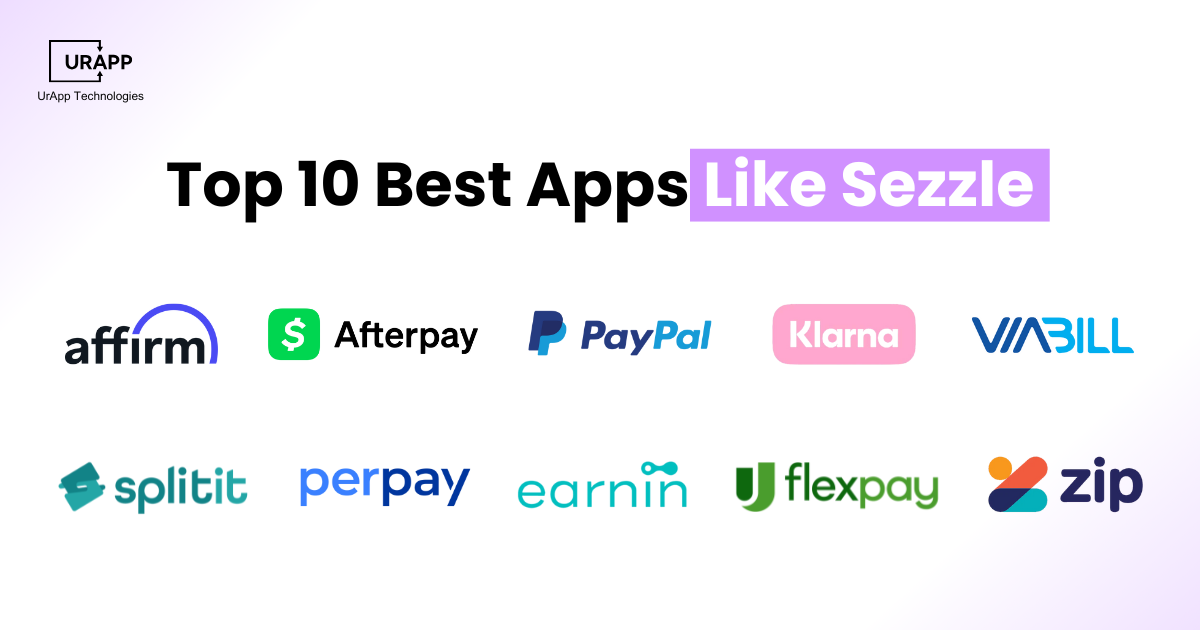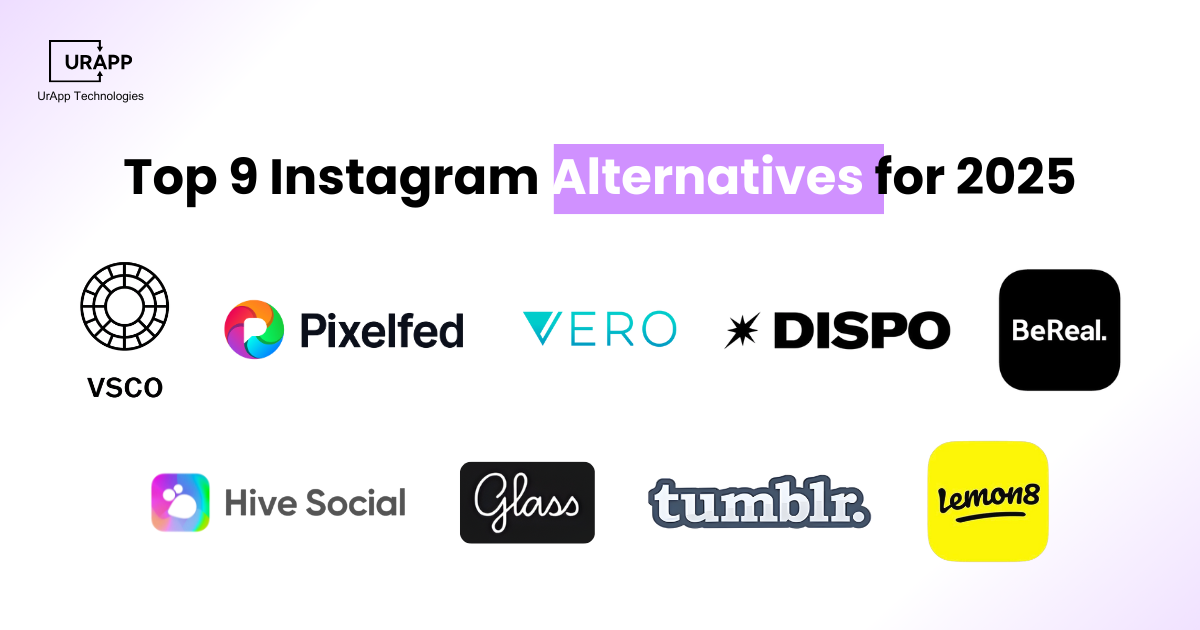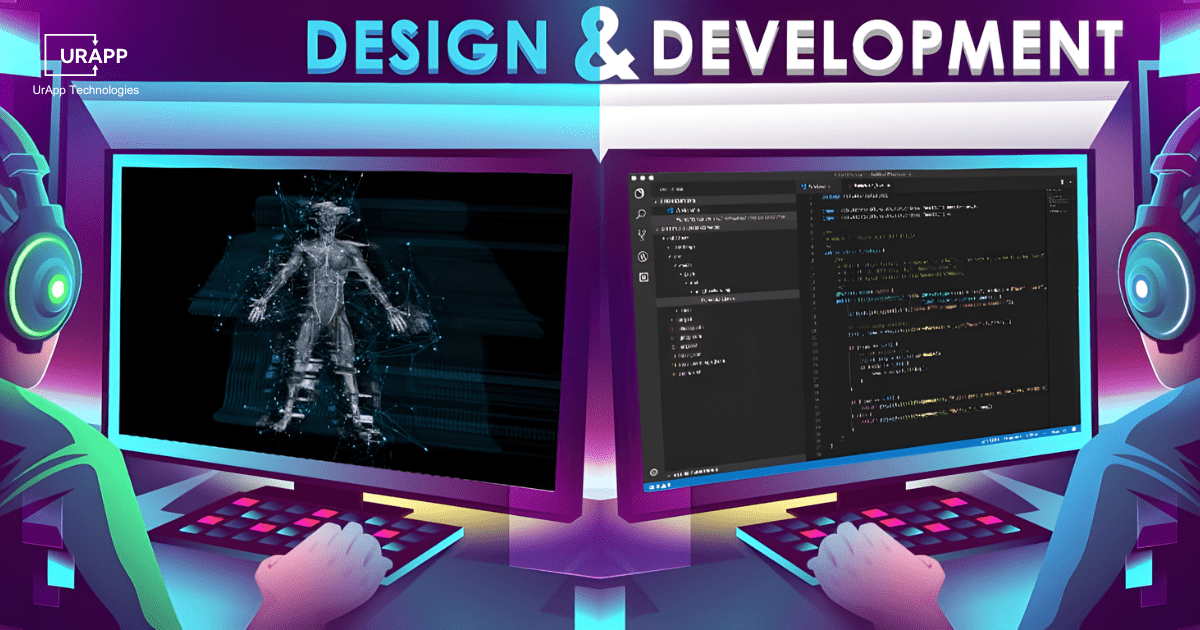Custom App Development Costs, Benefits & Process 2025
Tired of software that doesn’t fit your business?
Discover how custom application development can transform your workflows, save time, and give you a competitive edge.
What is custom application development?
Custom application development is the process of designing, building, and deploying software specifically tailored to meet the unique needs and requirements of a particular business or organization, rather than using off-the-shelf solutions.
Key Characteristics of Custom Application Development:
- Precise Fit: Unlike off-the-shelf software, custom apps are made to measure, directly addressing the unique demands of your business or users. They're built from the ground up to solve your specific problems.
- Unmatched Control & Ownership: You're in the driver's seat. You have full say over the entire development process and the future of your application, including how it's maintained and updated.
- Adaptable & Future-Proof: These applications offer immense flexibility and scalability, meaning they can easily grow and change alongside your business, adapting to new demands without a hitch.
- Seamless Operation: Custom software is designed to integrate perfectly with your existing systems and workflows, ensuring smooth data exchange and preventing operational bottlenecks.
- Unique Capabilities: You get exclusive features and functions that simply aren't available in standard software, giving your business a distinct advantage.
Benefits of Custom Application Development:
Custom application development provides personalized solutions that boost efficiency, strengthen security, and support business growth. It helps companies meet specific needs, improve workflows, and deliver better user experiences.

Tailored to Your Business Needs
- Custom applications are built specifically for your business goals, offering features that solve your unique challenges. This ensures smooth performance, efficient workflows, and better alignment with how your team operates.
Stronger Security and Data Protection
- With custom apps, security measures are designed from the ground up. Developers can implement advanced encryption, secure authentication, and regular audits—reducing the risks commonly found in off-the-shelf solutions.
Better User Experience
- Designed with your users in mind, custom apps offer intuitive interfaces, easy navigation, and personalized features. This leads to higher user satisfaction, increased engagement, and repeat usage.
Gain a Competitive Edge
- Custom applications can include unique features your competitors don’t have, helping your business stand out. They also support brand consistency and create a lasting impression with users.
Cost-Effective in the Long Run
- While the upfront cost may be higher, custom apps eliminate recurring licensing fees and reduce future integration issues—saving time, money, and resources over the long term.
Custom Apps vs. Off-the-Shelf Solutions
When choosing software for your business, the biggest decision is whether to build something from scratch or buy something that’s ready to use. Custom applications are built specifically around your needs, offering long-term flexibility, control, and unique value. Off-the-shelf solutions, on the other hand, are quicker and cheaper to get started with but may not fully match your business processes or scale well over time. The right choice depends on your goals, budget, and how much control or customization you really need.
| Aspect | Custom App | Off-the-Shelf |
|---|---|---|
| Personalization | It’s like tailoring a suit just for your body. Every feature is made to fit how your business works. You get exactly what you need, nothing more, nothing less. | This is more like buying something off the rack. It works well for many, but you might need to adjust your business to fit the software. |
| Growth & Flexibility | Built to grow with you. Whether your business expands or shifts direction, the app can evolve with minimal hassle. | You’re stuck with the limits of the software. If your needs outgrow it, you may end up switching tools or stacking multiple systems. |
| Security & Control | You control everything, from how your data is stored to how it's protected. It’s easier to build security features around your specific risks. | Security depends on the vendor. Updates and patches are handled externally, and you may not have much say in how your data is handled. |
| Cost: Now vs. Later | Yes, it’s expensive at the start. But in the long run, you avoid ongoing license fees, and it can save money by boosting productivity and reducing reliance on multiple tools. | Cheaper to start, sometimes even free. But over time, monthly subscriptions, upgrade costs, and add-ons can add up. Plus, you may pay more in the long run if it doesn’t fit well. |
| Integration & Compatibility | Built to work smoothly with your current systems and processes. No awkward workarounds. | You may struggle to connect it with your existing tools. Custom integration is possible, but not always easy or cheap. |
| Ownership & Dependence | You own the software, every line of code. That means full freedom to change, upgrade, or scale it however you like. | You’re dependent on the vendor. If they change their pricing, discontinue features, or shut down, you’re stuck. |
| Time to Launch | Takes longer. You’ll need to plan, design, build, and test before you can use it. | Ready to go in minutes. Great if you need a fast solution with basic functionality. |
How to Build Custom Apps From Scratch?
Building a custom application is a step-by-step process that starts with understanding your business goals and ends with launching a fully functional, user-friendly app. It involves planning, design, development, testing, and continuous maintenance. Whether you're a startup or a large company, this structured approach helps create a solution that’s tailored to your specific needs, scalable for growth, and capable of delivering a great user experience.

Define Goals and User Needs
- Start by identifying the problem your app will solve and who it’s for. Clearly outline your business goals, user needs, and the core features your app must include. This helps set the direction for everything that follows.
Plan and Design the Experience
- Research the market and look at similar apps to spot gaps or opportunities. Use wireframes or design tools like Figma to create visual mockups of how the app will look and function. A simple, intuitive design ensures users can easily navigate and enjoy using the app.
Choose the Right Technology Stack
- Decide whether to build a native, web, or hybrid app, based on your goals. Pick suitable programming languages, frameworks, and databases. For faster projects, low-code or no-code platforms like Tadabase can also be a great option.
Develop the Application
- This phase involves actual coding — both front-end (what users see) and back-end (how it works). APIs, databases, and all features are built out. Developers work to ensure the app functions smoothly and reliably.
Test Thoroughly
- Before launch, the app goes through multiple tests:
- Bug testing to catch technical issues
- Usability testing to ensure a good user experience
- Performance testing to make sure it runs well under all conditions
Launch and Maintain
- Once everything is ready, the app is deployed on app stores or web platforms. After launch, ongoing maintenance is essential — including updates, security patches, and support for new devices or user feedback.
What Does Custom Application Development Really Cost in 2025?
When you hire a team (or build internally) to create a bespoke app, the investment can range widely, from the low tens of thousands of dollars to well into six figures. What you'll pay depends largely on your app’s features, platforms, integrations, and the development team you use.
Typical Cost Ranges (U.S.‑Dollar Benchmarks)
| Application Type | Estimated Cost (USD) |
|---|---|
| Basic Custom Application | Single platform, minimal integrations, simple UI: $10,000 – $50,000 |
| Mid-Complexity Application | Multi-platform or web + mobile, moderate integrations, custom UI: $50,000 – $250,000 |
| Enterprise-Grade Custom System | Multi-platform, heavy backend, real-time data, advanced features like AI/IoT/blockchain: $250,000+ (often up to $500,000+) |
Factors Influencing Costs
- Feature set & complexity: More user roles, real‑time updates, external APIs, advanced modules = higher cost.
- Platform choice: Web only is less than mobile only, which is less than iOS + Android + web.
- Technology stack & integrations: Legacy system integration, third‑party services, AI, IoT raise cost.
- Design and UX: Custom branding, animations, multiple screen sizes, polished UI/UX mean more hours.
- Team location & hourly rate: U.S./Western Europe teams tend to cost more per hour than offshore teams, impacting total cost.
- Post‑launch maintenance & hosting: Don’t forget ongoing costs, updates, security patches, server/cloud fees.
Choosing the Best Mobile App Development Company
A custom app's effective development and deployment depend on choosing the best mobile app development company. Consider the following:
Skill and Knowledge
- Search out businesses who have a proven track record of completing projects successfully and ensuring client satisfaction.
- Choose a business with experience in your sector. This ensures they understand your unique requirements and can address your challenges effectively.
Technical Skills
- The best companies stay updated with the latest technologies and development practices, ensuring cutting-edge solutions.
- Seek a provider known for creativity and innovation in developing effective and unique Mobile Applications.
Customer Support
- Ensure the company offers comprehensive support and maintenance services to address any issues that may arise post-launch.
- Clear and consistent communication is essential for a smooth development process and successful project outcomes.
Portfolio and References
- Review the tech company’s portfolio to evaluate their capabilities and the quality of their work.
- Seek feedback from past clients to gauge their experiences and satisfaction with the company’s services.
Key Takeaways
- Custom applications are built specifically for your business, matching your workflows, goals, and challenges perfectly.
- They provide long-term benefits such as better control, stronger security, scalability, and unique features to stay competitive.
- Development costs vary based on complexity: $10,000–$50,000 for basic apps, $50,000–$250,000 for mid-level, and $250,000+ for enterprise-grade solutions.
- Success relies on a structured development process including goal definition, UX/UI design, tech stack selection, coding, testing, and ongoing maintenance.
- Choosing the right development partner ensures quality, smooth deployment, and long-term support for your custom application.
Conclusion
Custom application development in 2025 is essential for businesses aiming to stay competitive. Tailored mobile apps improve user experience, enhance operational efficiency, and provide a unique edge over competitors. Partnering with a skilled mobile app development company ensures your custom app meets business goals, integrates seamlessly with existing systems, and supports long-term growth in the digital landscape.







